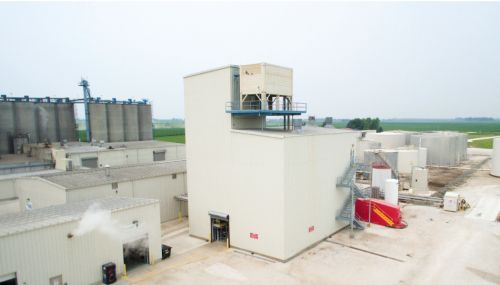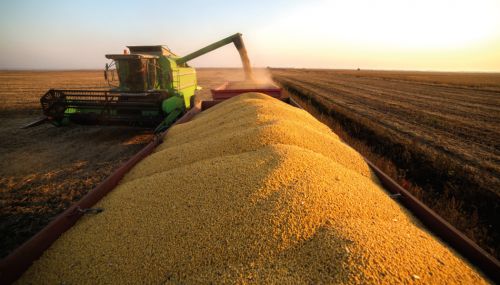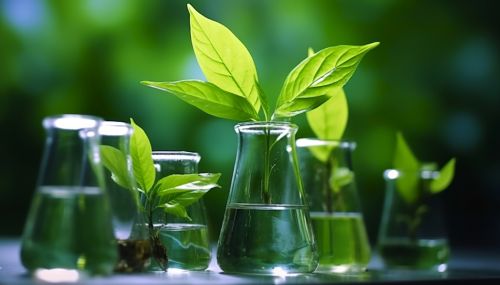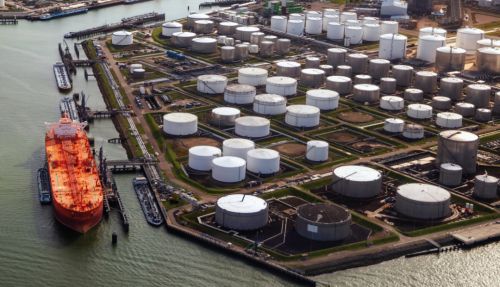All
Act Now on Biodiesel Contracts
by Jason Lawrence, Chevron Renewable Energy Group

Securing your fuel supply early makes winter easier
Fuel wholesalers and retailers moving into the renewable fuels market often learn the hard way that biodiesel supply operates differently than traditional petroleum product supply. The biodiesel supply chain, from production to shipping and transport, requires advance planning and contracts. Companies expecting to purchase at the rack on an as-needed basis could find themselves facing limited availability and potentially extensive delays.
Ensuring a consistent, reliable supply requires entering into agreements prior to the start of the seasonal demand. If a biodiesel/biodiesel-blend retailer has not yet secured a contract for the 2023-2024 season, they should do so as soon as possible.
Now is the time to have these conversations with wholesale and producer partners. Reserving gallons in advance can help protect pricing and ensure delivery of high-quality fuel. Waiting to order fuel until needed can affect the probability of getting the supply that you require to meet your customer demands. As with any premium product, biodiesel is produced to stringent quality-assurance standards and often sells out more quickly.
Once the company has secured a contract with its biodiesel producer, its fuel supply is assured, and pricing is usually more advantageous than when purchased at the rack. This commitment must be a two-way street. Just as the retailer or wholesaler promises to purchasing biodiesel from the producer, the producer must ensure that there is sufficient capacity when needed.
Higher blends of biofuels are now being used across the country. As the percentage of biodiesel increases, its quality is more important than ever. The purity of the biodiesel in B50 or B100 can be the defining characteristic of the delivered fuel. It can mean the difference between a problem-free season for retailers and their customers, or one plagued with emergency service calls due to clogged filters, gelling or equipment failures. For blenders at any point in the distribution pipeline, this is another reason to have the conversations now to ensure they receive the biodiesel from experienced, reliable, high-quality producers.
When choosing a biodiesel partner, wholesalers and retailers need to consider the producer’s range of fuels, their feedstock flexibility, locations, distribution points and transportation options. These issues should be reviewed during your initial conversations. If your biodiesel partner is not overwhelming you with its company’s capabilities, talk to another producer.
Feedstock flexibility and a diverse footprint of facilities can help deliver a successful season. In 2022, Chevron Renewable Energy Group utilized more than 15 different types of feedstocks from more than 100 suppliers across the globe. Most of the company’s suppliers have been partners for 10 years or longer, and feedstocks are sourced through long-term contracts of 12 months or greater.
Purchasing feedstocks in advance of capacity demands is the key to Chevron Renewable Energy Group’s manufacturing efficiency. This strategy is behind the ramp up of feedstock purchasing ahead of the expansion and improvement project at the Geismar, Louisiana, biorefinery, which will increase Chevron Renewable Energy Group’s production capacity as it works toward its target of around 100,000 barrels per day by 2030.
This ability to be nimble with feedstocks is key to a consistent supply of high-quality fuel. Chevron Renewable Energy Group has invested significant resources into researching new approaches to optimize current feedstocks and how novel feedstocks such as cover crops and algae can be added to the feedstock pool.
Chevron Renewable Energy Group is always looking for new ways to produce high quality, lower carbon fuels. This is exemplified by its commitment to the BQ-9000® quality assurance program, as well as its proprietary pretreatment process. The pretreatment process enables the company’s unique feedstock flexibility, refining lower-cost feedstocks, often with higher levels of contaminants, into high quality, lower carbon fuels. Chevron Renewable Energy Group biodiesels typically record cetane numbers of 50 or higher, well above the 47 required by the ASTM for biodiesel.
To provide additional quality assurance to customers, all Chevron Renewable Energy Group biorefineries have on-site labs to test the quality of the incoming (e.g., feedstocks) and outgoing (e.g., liquid fuels) materials. Working with the Technical Services team, the company can provide fuel sample testing, filter analysis and technical advice on storing, handling and blending fuel.
One year into of the acquisition of Renewable Energy Group by Chevron, the company is better situated to its role as a driving force to move fuel forward to a lower carbon future than ever before.
Now is the time to have important conversations with your biodiesel producer. Start by contacting Jason Law-rence at Chevron Renewable Energy Group, Jason.lawrence@chevron.com or (717) 989-1313.
Jason Lawrence is Senior Business Development Executive at Chevron Renewable Energy Group. He can be reached at (717) 989-1313 or jason.lawrence@chevron.com.
BQ-9000® is a trademark of the Clean Fuels Alliance.
Related Posts
 Why Quality Matters in Your Biofuel Blends
Why Quality Matters in Your Biofuel Blends
Posted on June 25, 2025
 Incorporating Higher Blends of Biofuels
Incorporating Higher Blends of Biofuels
Posted on May 14, 2025
 NORA Programs at Eastern Energy Expo
NORA Programs at Eastern Energy Expo
Posted on May 13, 2025
 March Short-Term Energy Outlook
March Short-Term Energy Outlook
Posted on April 28, 2025
Enter your email to receive important news and article updates.
